blog
Book Review: Congo in Conversation by Finbarr O’Reilly
What a superb shot!, was my reaction to this colourful, elegantly composed cover. Images of a BBC report from twenty years ago on a fashion show at a hotel in Blantyre, Malawi, popped up in my head, the goal of which had been to show an Africa that was something different from the usual news from the continent – famine, wars, and wildlife.
Congo in Conversation, I learn from the preface, was launched by British-Canadian photographer Finbarr O’Reilly, as “an online collaborative reportage with Congolese journalists and photographers. During six months, they documented the human, social, and ecological challenges that Congo faces today, within the context of the Covid-19 crisis.” Needless to say, this publication couldn’t be more timely.
Who are they? Arlette Bashizi, Dieudonne Dirole, Justin Makangara, Al-Hadji Kudra Maliro, Danny Matsongani, Guerchom Ndebo, Raissa Karama Rwizibuka, Moses Sawasawa, Pamela Tulizo, Ley Uwera, and Bernadette Vivuya.
“Finbarr saw an opportunity for Congolese reporters to regain the central storytelling role long held by outsiders and reshape narratives around Congo. He worked with the Congolese photographers from afar, discussing subjects to cover, photo edits etc.,” Myrtille Beauvert, who looks after the press for the Carmignac Photojournalism Award, lets me know.
Congo in Conversation is introduced by a conversation between Mark Sealy, curator and Director of ABP in London, photographer Finbarr O’Reilly, and Emeric Glayse, Director of the Carmignac Photojournalism Award, about the colonial past, the African images provided largely by foreigners and by an attempt to answer the question: “But how do we develop and encourage other ways of seeing things?”
I must admit I have no idea whether the photographs in this tome look different from others taken in the Congo. I haven’t seen that many. What I can however say is whether they appealed to me, made me think as well as wonder and question what I saw. Yes, absolutely.
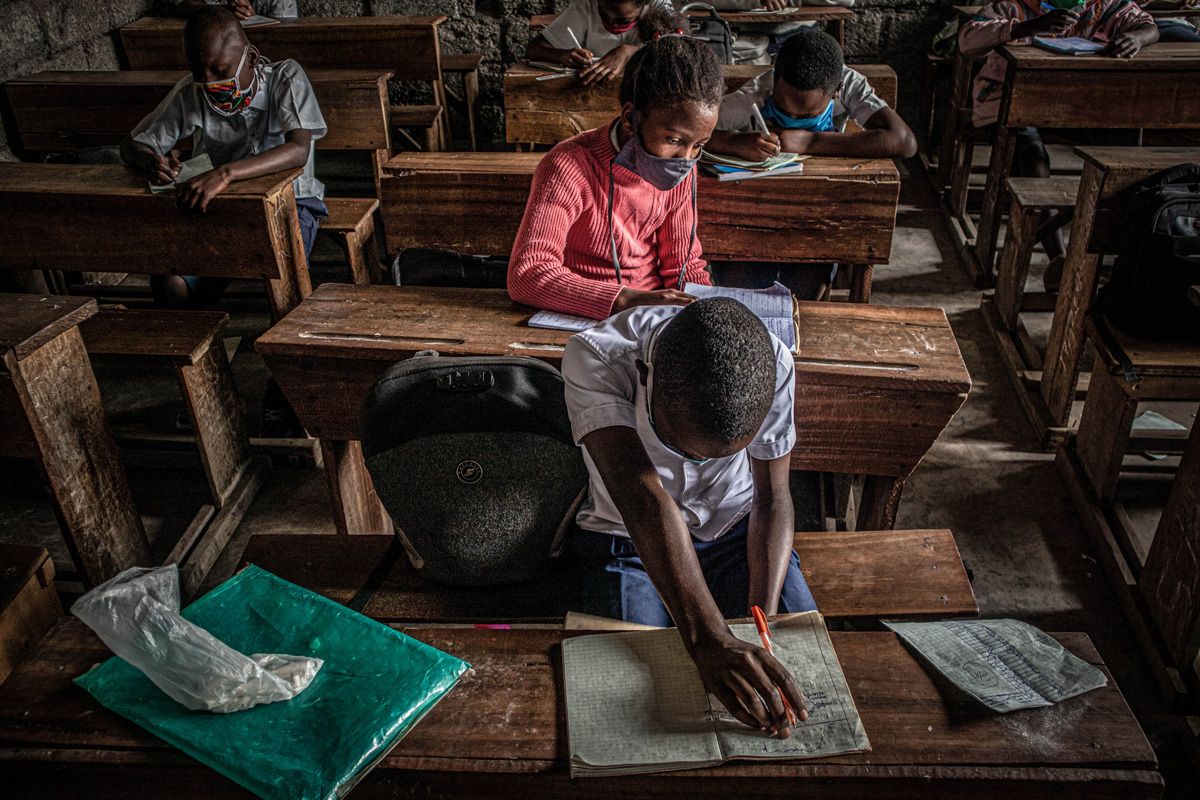
Goma, DRC, August 2020. Students attend class as schools reopened. © Arlette Bashizi for Fondation Carmignac
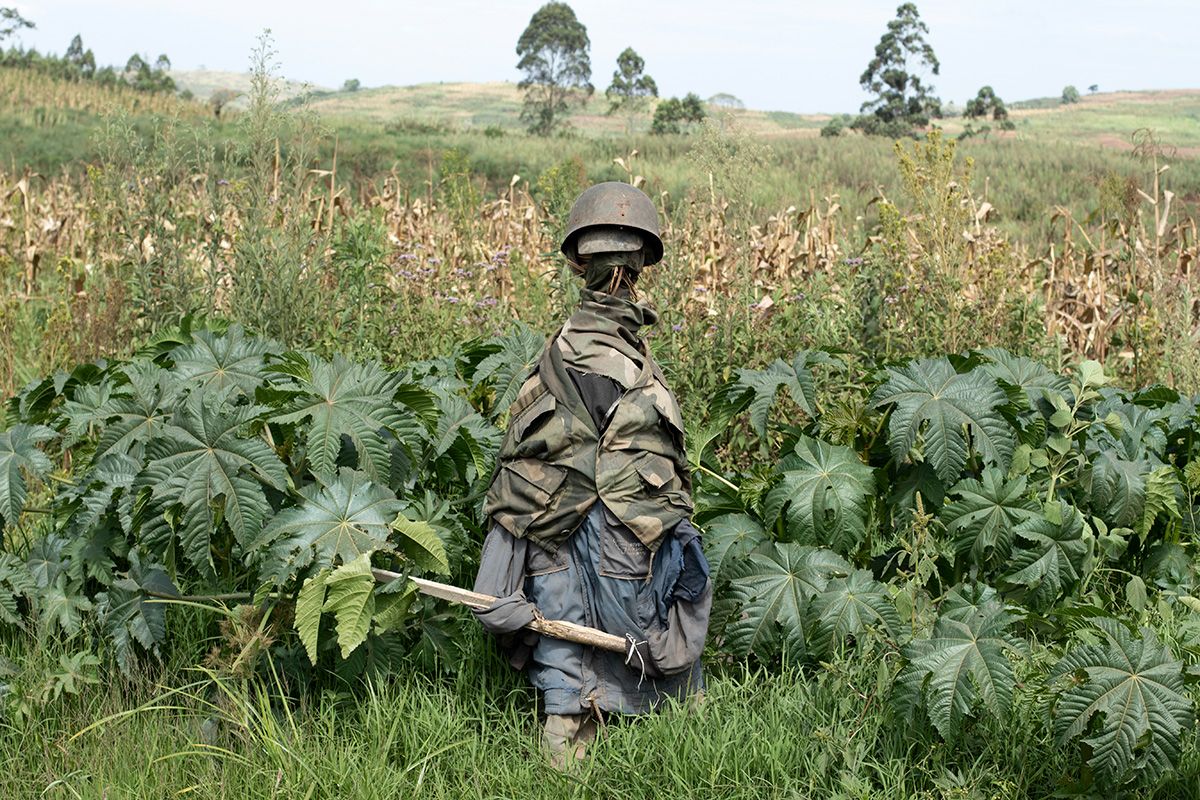
Northeastern Ituri Province, DRC, February 2020. The likeness of a Congolese soldier stands in a field near the village of Tche in Congo’s northeastern Ituri Province in mid-February. With few government forces in the area villagers from the Hema community erected the likeness in the hopes of warding off armed members of the Cooperative for the Development of Congo (CODECO), an armed political-religious sect drawn from the Lendu ethnic group that has been blamed for a wave of killings in the province over the past two years. © Dieudonné Dirole for Fondation Carmignac
Pics like the ones below are however almost self-explanatory.
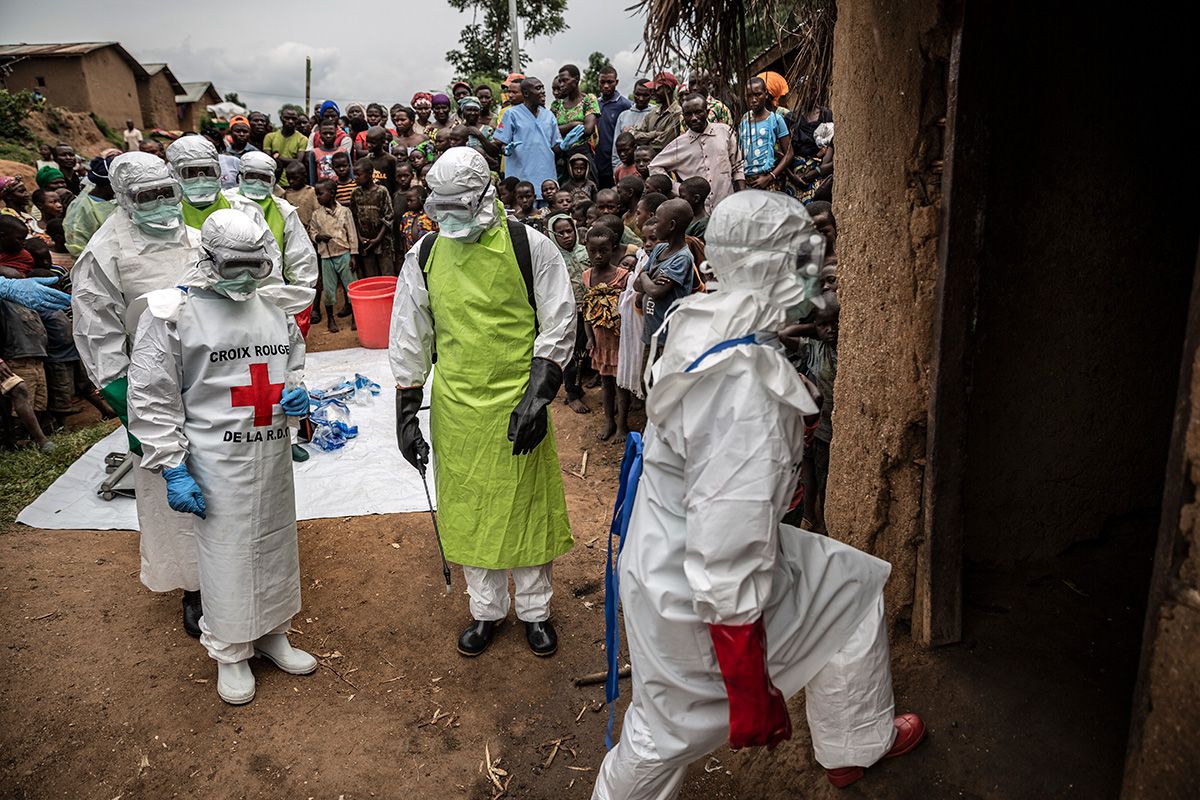
Neighbours and Red Cross workers in protective clothing prepare to bury an 11-month-old girl who died during Congo’s Ebola outbreak in the town of Rutshuru in Congo’s North Kivu Province, February 2020. © Finbarr O’Reilly for Fondation Carmignac
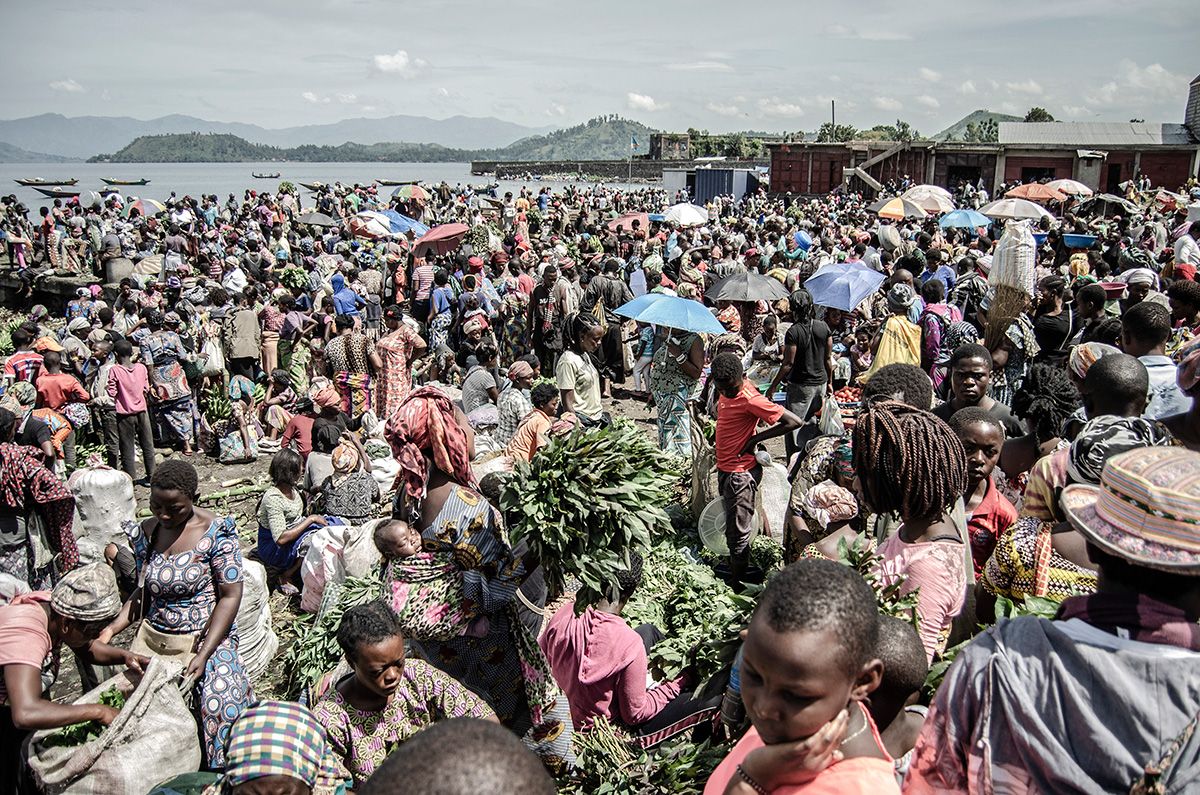
Goma, Democratic Republic of Congo, April 2, 2020. Vendors and shoppers at Kituku market on the shores of Lake Kivu. Congo has one of the highest rates of informal workers in the world with about 80 per cent of urban workers involved in the informal economy, according to the World Bank. The Trade Union Confederation of Congo estimates that nationally the informal economy represents an astronomical 97.5 per cent of all workers. © Moses Sawasawa for Fondation Carmignac
Congo in Conversation is divided into the following chapters/themes. Life. (“Amidst the vast country, from Kinshasa to Goma, the protective mask is at once banality, a shield and, for the trendy, an affirmation of liberation and individuality. The DRC, a country of 90 million inhabitants, has recorded less than 300 deaths from Covid-19; here, the values of community, beauty and pride are not empty words.”). Health (“Hospitals often lack basic equipment and staff and run out of essential medicines and supplies.”). Access to Clean Water (“Congo is Africa’s most water-rich country, holding more than half of the continent’s fresh water reserves, but 75% of the country’s 80 million people have no access to safe drinking water.”) – the conflicting population figures 90 million or 80 million inhabitants, made me google it: the Worldbank, in 2018, stated: 84.07 million – Electricity and Hydroelectric Plants (“Congo has one of the lowest electrification rates in the world at just over 9%, 1% in rural areas and 19 in urban areas.”). Environment (“Virunga is the continents oldest national park and largest tropical rainforest reserve, covering 7,800 km2, and home to over half the world’s population of mountain gorillas.”). Politics and Insecurity (“Insecurity is by far Congo’s biggest impediment to progress. There are more than 140 armed groups active in eastern Congo’s North and South Kivu provinces.”). Decolonization (“The 60th anniversary of Congo’s independence in June 2020 coincided with the coronavirus pandemic – and with the sweeping denunciation of both the colonial past and the racist present everywhere in the world.”).
Congo in Conversation convincingly demonstrates the potential that photojournalism has to make us aware of people and places hardly known. For me, it has been in many respects a real eye-opener.
To find out more about this project and see all of the images visit https://congoinconversation.fondationcarmignac.com/
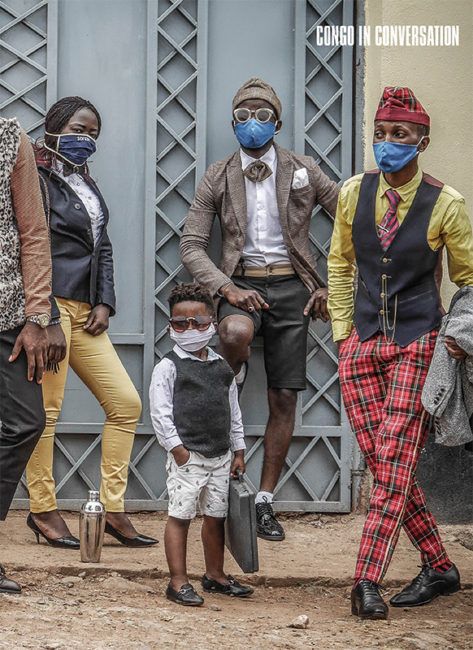
Congo in Conversation
Photographs by Finbarr O’Reilly and Congo in Conversation contributors
Refliefs Éditions, Fondation Carmignac, Paris, France 2020
Location: Online Type: Book Review
Events by Location
Post Categories
Tags
- Abstract
- Alternative process
- Architecture
- Archives
- Artist residency
- Artist Talk
- Biennial
- Black and White
- Book Fair
- Car culture
- Charity
- Childhood
- Children
- Cities
- Collaboration
- Community
- Cyanotype
- Documentary
- Environment
- Event
- Exhibition
- Faith
- Family
- Fashion
- Festival
- Film Review
- Food
- Friendship
- FStop20th
- Gender
- Gun Culture
- Habitat
- home
- journal
- Landscapes
- Lecture
- Love
- Masculinity
- Mental Health
- Migration
- Museums
- Music
- Nature
- Night
- nuclear
- Photomontage
- Plants
- Podcast
- Portraits
- Prairies
- Religion
- River
- Still Life
- Street Photography
- Tourism
- UFO
- Water
- Zine

Leave a Reply